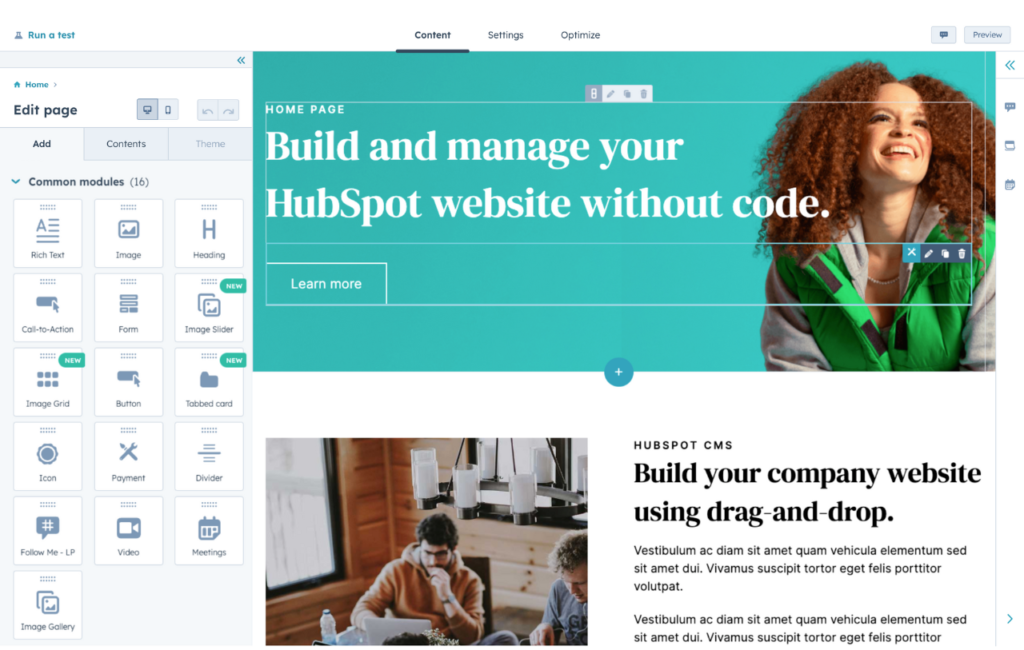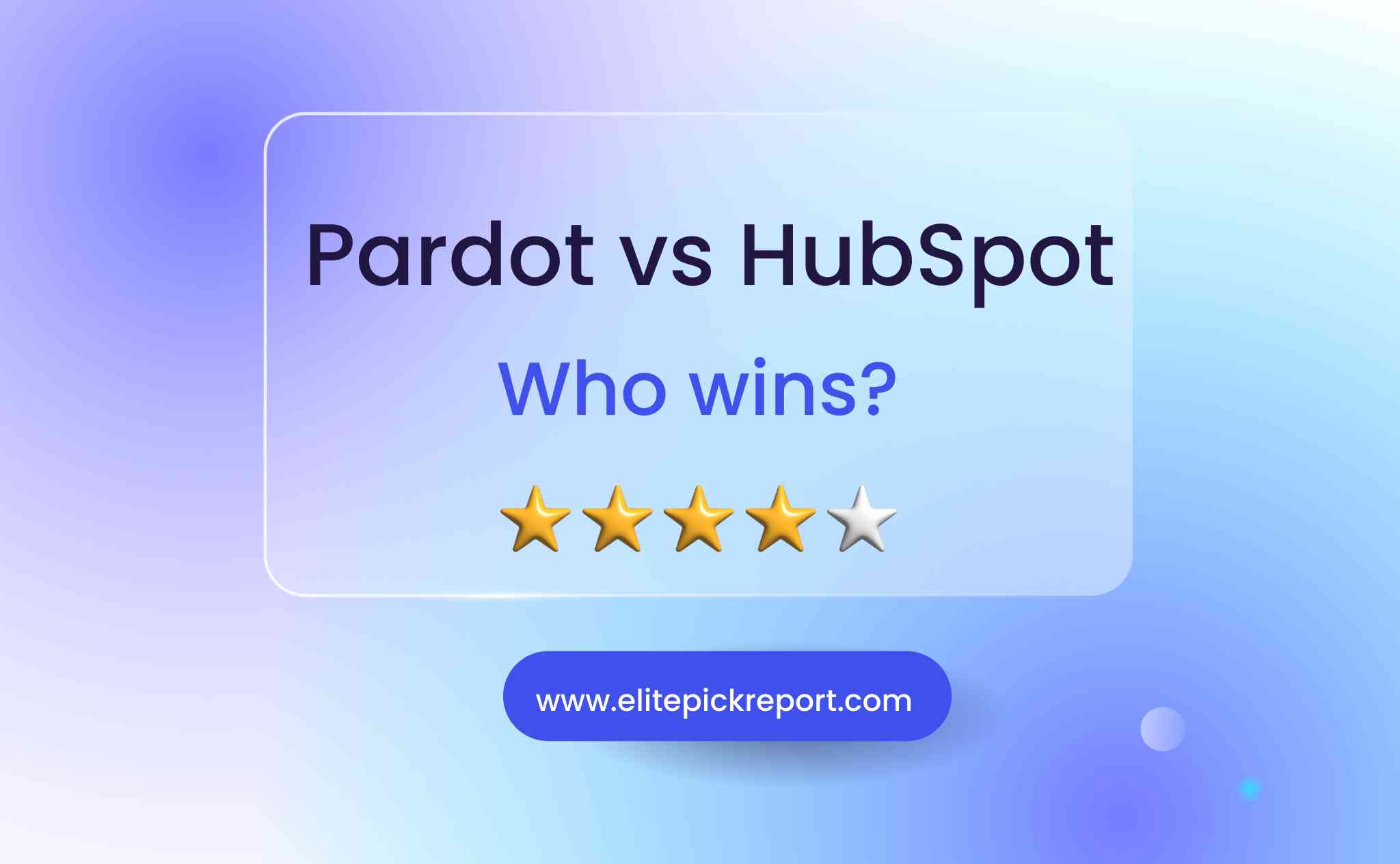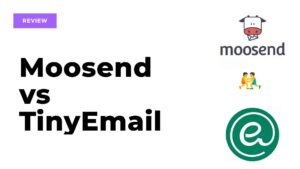In the dynamic landscape of marketing automation, choosing the right platform is crucial. Today, let’s explore the options and delve into the debate of Pardot vs HubSpot. Are you looking for precise lead nurturing and seamless AI integration? Or perhaps a versatile inbound marketing approach is more your style. Let’s weigh the options to find what fits your unique goals.

Table of Contents
Pardot vs HubSpot
What is marketing automation?
Pardot vs HubSpot: Marketing automation refers to the use of software tools and technology to automate repetitive marketing tasks and processes. This includes activities such as email marketing, lead nurturing, social media scheduling, and campaign management. By automating these tasks, businesses can save time and effort while delivering personalized, targeted marketing campaigns to their audience.
Both Pardot and HubSpot offer robust marketing automation features that can help businesses streamline their marketing efforts and achieve greater efficiency. However, there are some differences in how each platform approaches marketing automation.
Pardot, which is owned by Salesforce, is known for its powerful lead generation and lead management capabilities. It offers features such as email marketing, lead scoring, and lead nurturing, allowing businesses to effectively engage with their prospects and move them through the sales funnel.

On the other hand, HubSpot provides a comprehensive, all-in-one marketing automation solution. In addition to lead management and nurturing, it offers a variety of tools for content creation, SEO optimization, social media management, and analytics. This makes HubSpot a popular choice for businesses looking for a fully integrated marketing automation platform.
The benefits of marketing automation for businesses
Implementing a marketing automation platform such as Pardot or HubSpot can bring numerous benefits to businesses of all sizes. Here, we will explore some of the advantages of utilizing marketing automation:
1. Time and resource savings: Marketing automation allows businesses to streamline and automate repetitive tasks, freeing up valuable time and resources that can be redirected towards more strategic initiatives. With automated workflows, businesses can schedule and trigger personalized marketing campaigns based on specific customer actions or behaviors.

2. Improved lead nurturing: Marketing automation platforms offer powerful lead nurturing capabilities, allowing businesses to deliver targeted, personalized content to their leads. By nurturing leads with relevant and timely information, businesses can increase their chances of converting leads into customers and accelerate the sales process.
3. Enhanced customer segmentation: Marketing automation tools enable businesses to segment their audience based on various criteria such as demographics, behavior, or engagement level. This allows businesses to deliver highly targeted content and offers to specific customer segments, increasing the effectiveness of their marketing campaigns, Data-driven decision-making: With marketing automation, businesses have access to comprehensive data and analytics that provide insights into campaign performance, customer behavior, and ROI. This data can help businesses make data-driven decisions, optimize marketing strategies, and improve overall results.
Introducing Pardot and HubSpot: A Brief Overview
Pardot, a product of Salesforce, is a powerful marketing automation tool designed for B2B companies. It offers a wide range of features including lead scoring, email marketing, campaign management, and ROI reporting. Pardot integrates seamlessly with Salesforce CRM, enabling businesses to align their marketing and sales efforts and track the customer journey.

On the other hand, HubSpot is a comprehensive inbound marketing and sales platform. It offers a suite of tools including CRM, email marketing, social media management, content management, and analytics. HubSpot’s user-friendly interface and extensive integrations make it a popular choice for businesses of all sizes.
In the following sections, we will delve deeper into the prices of both Pardot and HubSpot, highlighting their strengths and weaknesses to help you make an informed decision on Pardot vs HubSpot. So, let’s get started!
Pricing comparison: Pardot vs HubSpot
When choosing a marketing automation platform, pricing is a crucial factor to consider. In this section, we will compare the pricing models of Pardot and HubSpot to help you make an informed decision about which platform best fits your budget.
Hubspot Pricing for individual and small teams
Free Tools
Start generating and emailing new leads, and measuring your success — for free
- Free Marketing tools
- Free Sales tools
- No credit card required
Starter
Essential marketing tools to engage and convert leads
- Email marketing
- Landing pages
- Forms
- Live chat
- And:
- Email and in-app chat support
- HubSpot payments(U.S. only)
Professional
Comprehensive marketing software for automation, reporting, and campaigns
- Includes 2,000 marketing contacts
- Omni-channel marketing automation
- Social media
- Campaign reporting
- Custom reporting
- Teams
On the other end Pardot is designed primarily for B2B (business-to-business) marketing automation, and its pricing reflects its orientation toward teams and organizations rather than individuals. The platform is structured to support marketing and sales efforts at a company level, with pricing and features that are scaled for businesses rather than individual users.
- Pardot Growth: Starting at around $1,250 per month (billed annually).
- Pardot Plus: Starting at around $2,500 per month (billed annually).
- Pardot Advanced: Starting at around $4,000 per month (billed annually).
- Pardot Premium: Starting at around $15,000 per month (billed annually).
These prices are approximate and can vary based on the specific needs and negotiation with Salesforce. Additionally, prices are subject to change, and Salesforce may offer promotions or discounts that could affect the final cost (Pardot vs HubSpot).

What Is Pardot
What is Pardot? Pardot is a marketing automation platform designed to streamline marketing efforts by automating tasks like lead generation, email marketing, and lead nurturing.
Who uses Pardot? Pardot is utilized by marketing teams across various industries, particularly in B2B (business-to-business) settings.
What can you do with Pardot? With Pardot, you can create and send emails, build landing pages, capture leads through forms, track website visitors, score and qualify leads, and analyze marketing performance.
How does Pardot generate leads? Pardot generates leads through channels such as email campaigns, forms on landing pages, website tracking, social media, and paid advertising.
What is lead scoring in Pardot? Lead scoring in Pardot prioritizes leads based on their engagement with your marketing efforts. It assigns scores to leads based on their interactions, helping sales teams focus on promising prospects.
How does Pardot integrate with Salesforce? Pardot integrates seamlessly with Salesforce CRM, allowing for the synchronization of leads, contacts, and opportunities between the two platforms.
Can Pardot track email engagement? Yes, Pardot can track email engagement metrics like opens, clicks, and conversions, providing insights into the effectiveness of your email campaigns.
What is lead nurturing in Pardot? Lead nurturing in Pardot involves building relationships with leads over time through targeted and personalized communication, guiding them through the sales funnel.
Does Pardot offer analytics and reporting? Yes, Pardot provides analytics and reporting tools to track the performance of marketing campaigns, measure ROI, and make data-driven decisions.
Is Pardot suitable for small businesses? Pardot is commonly associated with larger enterprises but can also be used by small businesses needing advanced marketing automation capabilities, provided they have the resources to invest in the platform. However, smaller businesses should consider their budget and requirements when evaluating Pardot’s suitability.
Pardot vs HubSpot: User reviews and testimonials of Pardot and HubSpot
When deciding on which marketing automation platform to choose, it is essential to consider the experiences of other users. In this section, we will delve into user reviews and testimonials of Pardot and HubSpot to provide you with valuable insights into the performance and customer satisfaction of each platform.
Pardot has received positive feedback from users who appreciate its intuitive interface, ease of use, and robust features. Many users have highlighted the platform’s ability to streamline lead nurturing processes, improve lead generation, and provide valuable analytics for measuring campaign success. However, some users have expressed concerns about the steep learning curve for beginners and the need for additional training and support.

HubSpot has also garnered praise from users for its user-friendly interface, extensive features, and excellent customer support. Users have commended the platform’s comprehensive marketing automation tools, powerful analytics capabilities, and ability to integrate with other software systems. However, a few users have mentioned occasional glitches and delays in system updates.
Conclusion: Making an informed decision
After considering the experiences and opinions of other users and exploring the lead nurturing capabilities of both Pardot and HubSpot, you are now equipped with the information needed to make an informed decision.
When deciding between Pardot and HubSpot, it is important to consider your specific business needs, budget, and objectives. Pardot offers robust lead nurturing and integration with Salesforce, making it a suitable choice for businesses heavily invested in the Salesforce ecosystem. On the other hand, HubSpot provides a comprehensive suite of tools for inbound marketing, making it a great option for businesses looking to attract and convert leads through content marketing strategies.

Ultimately, the ideal marketing automation platform for your business depends on your unique requirements and goals. By thoroughly researching and assessing the features, benefits, and limitations of Pardot and HubSpot, you can confidently choose the perfect marketing automation platform to drive your business growth.
In conclusion, Pardot and HubSpot both offer powerful marketing automation capabilities, but understanding the nuances of each platform is key to making the right choice for your business. Consider your specific needs and objectives, and take advantage of other users’ experiences and insights to guide your decision-making process.
Pardot vs HubSpot: Secret Bonus
Thank you for sticking until the end here is a bonus for you!
Before finalizing your decision on which marketing automation platform to choose, it’s always helpful to consider the experiences and opinions of other users. Hearing from businesses that have already implemented Pardot or HubSpot can provide valuable insights into the benefits and challenges of each platform.
Unlock the full potential of your marketing strategy with the HubSpot free 14-day trial. Dive into a realm where innovation meets user-friendly interfaces, exploring a plethora of features tailored for seamless integration. Embark on a journey of unparalleled data analytics and customer engagement tools, transforming your business landscape.
During the free 14-day trial, immerse yourself in the intricacies of HubSpot’s CRM, an avant-garde approach to customer relationship management. Experience the dynamic workflow automation that streamlines tasks with surgical precision, enhancing efficiency and productivity.
More Elite = Better Pick

To get a well-rounded understanding, take the time to read reviews like Pardot vs HubSpot and case studies from businesses similar to yours. Look for examples of how Pardot vs HubSpot has helped companies like yours achieve their marketing goals and drive revenue growth. By doing so, you can gain a deeper understanding of how each platform performs in real-world scenarios and whether it aligns with your specific business needs. Here are some posts you might be interested in
📢❗🚨FastComet review: Worth your money? Check this review now! (2024)
📢❗🚨best a2 hosting alternatives: Find the Best Hosting Options






Pingback: SiteGround vs WP Engine who is Better in 2024?
Pingback: TinyEmail vs Drip: Which Marketing Tool is The Best for You 2024?